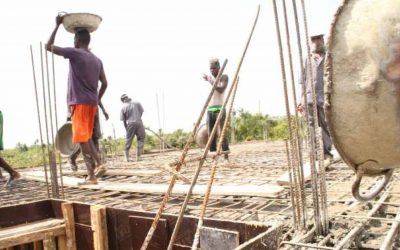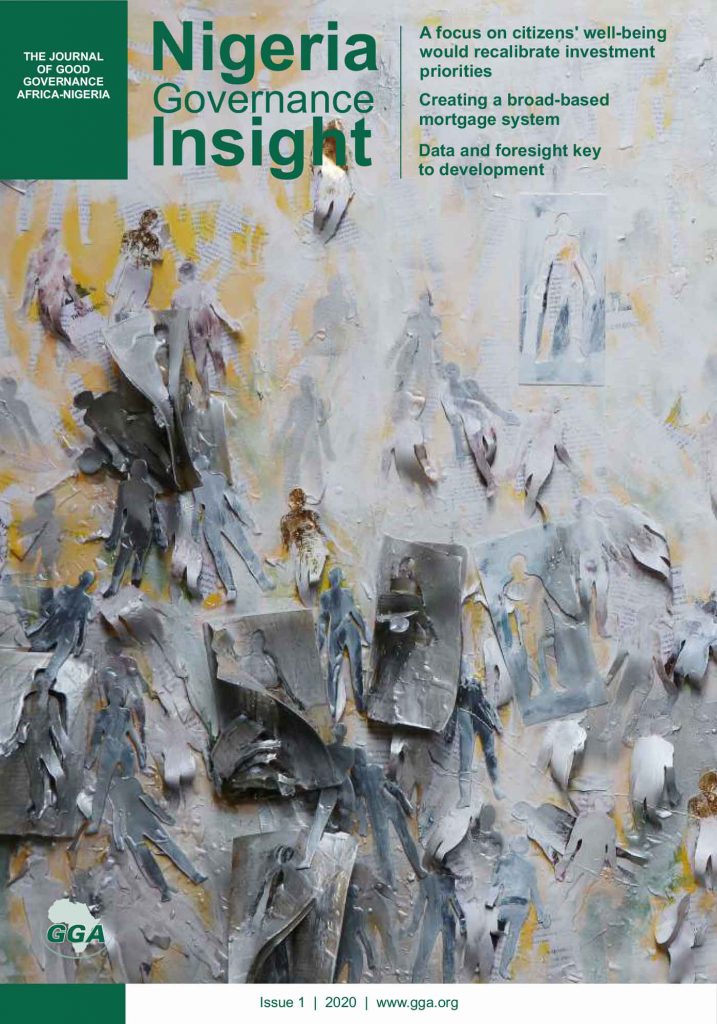
Nigeria
Good Governance Africa - Nigeria (GGA-Nigeria) Aims to contribute to good governance, through research, policy engagement and other activities that help promote sustainable socio-economic development in Africa’s largest economy and most populous country.Three Research Pillars
The GGA-Nigeria research stream is our core activity and is organised around three thematic pillars; each reflects Nigeria’s pressing challenges and impending opportunities:
Programmes
As the pre-eminent centre of excellence working to improve governance in the country, GGA-Nigeria’s activities are organised around three core thematic pillars that reflect Nigeria’s most pressing challenges and opportunities:
Improving the Business Environment (BIZ-ENV PROGRAMME)
This programme covers analysis of “software” issues that currently constrain well-functioning markets and dynamic business sectors in Nigeria. Priority themes include enhanced corporate governance, competitiveness and corporate sustainability and responsibility. The programme aims to lead pioneering research on standardised reporting and transparent accounting, which applies to both government and business.
Programmes
As the pre-eminent centre of excellence working to improve governance in the country, GGA-Nigeria’s activities are organised around three core thematic pillars that reflect Nigeria’s most pressing challenges and opportunities:
Improving the Business Environment (BIZ-ENV PROGRAMME)
This programme covers analysis of “software” issues that currently constrain well-functioning markets and dynamic business sectors in Nigeria. Priority themes include enhanced corporate governance, competitiveness and corporate sustainability and responsibility. The programme aims to lead pioneering research on standardised reporting and transparent accounting, which applies to both government and business.
Programmes
As the pre-eminent centre of excellence working to improve governance in the country, GGA-Nigeria’s activities are organised around three core thematic pillars that reflect Nigeria’s most pressing challenges and opportunities:
Improving the Business Environment (BIZ-ENV PROGRAMME)
This programme covers analysis of “software” issues that currently constrain well-functioning markets and dynamic business sectors in Nigeria. Priority themes include enhanced corporate governance, competitiveness and corporate sustainability and responsibility. The programme aims to lead pioneering research on standardised reporting and transparent accounting, which applies to both government and business.

Extractives, Power and Oil Sector Reform (EXT-REF PROGRAMME)
This programme is concerned with the reform of Nigeria’s extractive industries (oil and gas, and the re-emerging mining sector), which together constitute the primary, sources of government revenue, even though the overall share of extractives has shrunk significantly to just over 10% of Nigeria’s increasingly diversified economy. Key themes of this programme include the reform of taxation and overall fiscal provisions in these sectors that can help Nigeria recalibrate its focus from “Gas-for-Export” to “Gas-to-Power” projects.

Enabling Innovation and Sustainability Drivers (INN-SUS PROGRAMME)
This programme aims to uncover and upscale successful governance innovations by connecting them to sources of technical and financial support. It will work to unearth successful governance experiments and tested local models of sustainable transformation. By helping to “tell the story”, this programme hopes to help turn evidence-led innovations into replicable solutions that can, in time, be applied and scaled-up across all of Nigeria’s 36 states. The programme will pay particular attention to locally inspired accountability frameworks, youth, gender and empowerment, climate innovations, as well as agricultural development and catalysts at all levels of government in Nigeria.
Our publications
Unlocking liquidity crucial to fuelling development
There are growing concerns about Nigeria's fiscal situation. Key sources of concern are the country's dwindling revenues, soaring deficits, growing debts levels and escalating debt burden. These led...
Public procurement in Nigeria is stuck in a quaqmire
During his screening by the Nigerian Senate on 29 July 2019, Babatunde Fashola, the previous Minister of Power, Works and Housing and current Minister of Works and Housing, blamed Nigeria's Public...
Reforms and Infrastructure in Nigeria
Nigeria's need for fundamental and sustained economic reform is magnified by deeply worrisome key economic indices. The country's population is approaching 210 million, while real gross domestic...
Reforms and Infrastructure in Nigeria
Nigeria's need for fundamental and sustained economic reform is magnified by deeply worrisome key economic indices. The country's population is approaching 210 million, while real gross domestic...
Ethnically diverse police forces recruited by each geopolitical zone is needed
Since President Muhammadu Buhari assumed office in 2015, there has been a marked deterioration in Nigeria's security situation. Amid the deterioration, the Nigerian Police Force (NPF) is widely...
Creating a Broad-Based Mortgage System
In April 2019, President Muhammadu Buhari refused assent to the National Housing Fund (Establishment) Act of 2018 (“the new NHF Act”). The private sector decried what it described as yet another...
Reforming Nigeria’s textiles and garments industry
A major focus of policymakers in Nigeria is the quest for inclusive growth. From this perspective, stimulating growth in labour-intensive sectors with the capacity for mass job creation is a key...
News from the region
Quickly access all the latest news, articles and press releases from our centres operating in Nigeria
GGA Nigeria
[wp_team_list role=”gga-nigeria” orderby=”ID” order=”asc”]
GGA – NIGERIA
GGA – NIGERIA
Tel: +234 1 4627411-3
Email: info.nigeria@gga.org
READ BETWEEN THE LINES
Sign-up to our newsletter to get the inside track on Africa
Improving the Business Environment (BIZ-ENV PROGRAMME)
This programme focuses on myriad “software” issues, which currently constrain well-functioning markets and dynamic business sectors in Nigeria.
These include business regulations, institutions and other determinants of private-sector growth and shared economic prosperity.
We proffer policy alternatives to help address constraints and unleash Nigeria’s economic potential.
Priority themes include enhanced corporate governance, competitiveness and corporate sustainability and responsibility.
Through pioneering research and policy innovations, we seek to crystallise the reciprocal responsibilities required of government, business and the wider community in driving a change and transformation agenda.
Extractives, Power and Oil Sector Reform (EXT-REF PROGRAMME)
Reform of Nigeria’s oil and gas sector, along with the re-emerging mining sector, provides the focus for this programme. Closely related is Nigeria’s power shortage, which continues to constrain the economy overall. Although the share of extractive rents in aggregate national output fell after the 2013 economic rebasing, oil and gas remain the major source of government revenue.
Being key levers for social and economic transformation, we seek to tease out innovations and governance re-engineering to promote efficiency, plug leakages and drive competition in these “lifeline” sectors. Priority themes for the programme include transparency and restructuring in oil and gas; the actualisation of Nigeria’s “gas-to-power” push to boost equitable electricity access; and inclusive approaches to mineral resources development, with a focus on industrialisation and structural economic transformation.
Enabling Innovation and Sustainability Drivers (INN-SUS PROGRAMME)
This programme aims to analyse, understand and upscale governance innovation. It seeks to systematise knowledge around successful governance experiments and sustainable local transformation models.
In “telling” transformation stories, the programme will help to turn the evidence on innovations into replicable solutions that can be applied and scaled up in relevant contexts across Nigeria’s 36 states.
The programme will pay particular attention to locally inspired accountability frameworks; youth, gender and empowerment ideas; climate innovations, as well as agricultural development and other catalysts at multiple levels of governance in Nigeria.
Where relevant, GGA-Nigeria seeks to play the role of catalyst for governance innovators to link up with higher policy levels and processes, as well as facilitating access to technical and financial support.







